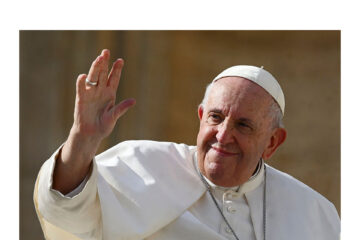Allexer Namundjebo, Julia Heita , Hertta-Maria Amutenja
Namibia stood still in grief on Saturday as the nation laid to rest its founding father, Sam Nujoma, at Heroes’ Acre.
A profound silence fell over the country as the Namibian Defence Force’s (NDF) honoured him with a solemn 21-gun salute, marking the final farewell to a leader who shaped the destiny of a free Namibia.
Thousands of mourners filled the capital, Windhoek, their faces etched with sorrow and singing in unison the liberation ‘Sema ouli peni,’ calling on Nujoma to raise the national flag.
Nujoma was silent forever.
A visibly sad President Nangolo Mbuma told mourners to take solace that Nujoma left a free and independent nation.
“We salute you, diamond of Etunda Village, for a life well lived, in service of the Republic of Namibia,” said Mbumba.
According to him, the nation is now the master of its own destiny.
Yotham Simasiku travelled nearly 800 km from Oshakati to participate in the history of burying its Founding President.
“You can see he was a unifier. The peace and the joy among the people are visible. We must now ask ourselves how we are going to preserve what he has done for us,” he said.
The previous day at the national memorial service, Nujoma’s eldest son, Utoni Nujoma, described his father as a pillar of strength and a fountain of wisdom.
“Although we could not have him around us all the time, we nevertheless understood very well that he embodied and personified the liberation struggle for Namibia’s freedom and independence,” said Utoni.
Swapo’s Oshikoto coordinator, Armas Amukwiyu, who led a delegation from his region to the memorial and burial services, added that the nation’s actions should reflect the flame of liberty that Nujoma ignited.
“Today more than ever, it is our responsibility to continue the journey he began, ensuring that his dream remains alive in every act of courage and unity,” said Amukwiyu.
African leaders praised Nujoma for his contribution to a free continent.
Zimbabwean President and SADC Chairperson, Emmerson Mnangagwa highlighted Nujoma’s role in regional liberation.
“His exemplary and consistent leadership during our struggles for independence laid critical building blocks for the democratic culture that not only Namibia but the whole of SADC cherishes to this day,” Mnangagwa said.
He described Nujoma as a leader whose vision extended beyond Namibia’s borders.
“Throughout his tenure as president, Nujoma championed policies that promoted social justice, economic development, and regional cooperation. He understood that true liberation extends beyond mere political independence to encompass social equity and sustainable development,” Mnangagwa said.
Other African leaders in attendance were South African President Cyril Ramaphosa, Angolan President João Lourenço, former South African President Thabo Mbeki, former Tanzanian President Jakaya Kikwete, Tanzania’s Vice President Philip Mpango, and Lesotho’s Prime Minister Samuel Matekane.
Former president Hifikepunye Pohamba described Nujoma as more than just a leader.
“He was the embodiment of resilience, an unwavering voice for the oppressed. Through rivers of blood and the jungles of exile, he led with an unbreakable spirit, always believing that independence was not a matter of if, but when,” Pohamba said.
Pohamba also called on the nation to uphold Nujoma’s legacy.
“The best way to honour Nujoma is to embrace hard work, national unity, and reconciliation. He rejected tribalism, division, and hatred, and he wanted Namibia to stand as one,” he said.
Popular Democratic Movement leader, McHenry Venaani acknowledged Nujoma’s role in shaping Namibia’s political landscape.
“Politics is a contest of ideas, and in that contest, we often stood on opposite sides. But history will never forget that he was not just a participant in Namibia’s political journey; he was its architect,” Venaani said.
Venaani described Nujoma as a strategist whose leadership earned the respect of both allies and opponents.Nuyoma’s burial also signalled the end of the three-week-long mourning period.




